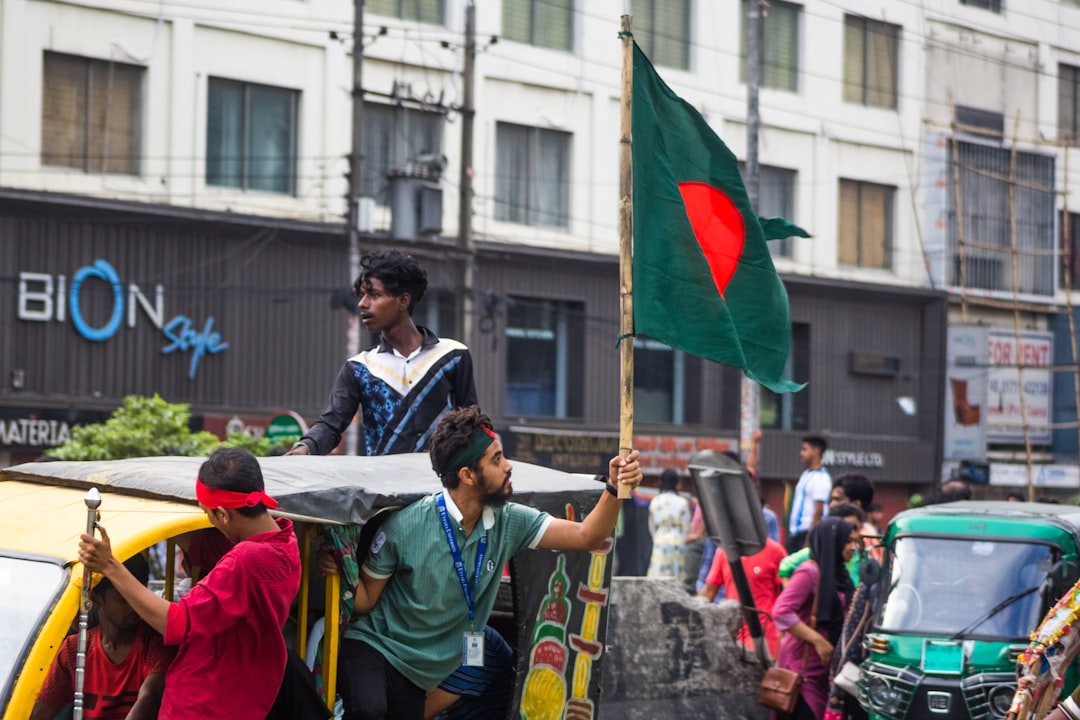Debt or Development? The IMF’s $1.3 Billion to Bangladesh Reignites Old Colonial Wounds
When the International Monetary Fund (IMF) announces another billion-dollar loan package to a developing nation, the headlines are predictable, the talking points rehearsed, and the controversy ever-present. The recent decision: Bangladesh will receive $1.3 billion under the third and fourth reviews of its IMF program—but is this an act of benevolence, a necessary evil, or a perpetuation of a broken global system?
The IMF Lifeline: Saviour or Shackler?
For the government in Dhaka, the IMF’s billions might seem like manna from heaven—funds to stabilize a wobbly economy and sustain ambitious infrastructure, energy, and social programs. But the other side of the coin is far from glamorous. Across South Asia (and the world), IMF loans evoke anxieties about lost sovereignty, harsh conditionalities, and the specter of “debt-trap diplomacy.”
Table 1: IMF Funding—A Double-Edged Sword
| Aspect | Pros | Cons |
|---|---|---|
| Short-term Cash Inflow | Stabilizes currency and economy | Adds to national debt burden |
| Policy “Guidance” | Encourages fiscal discipline | Forces austerity: subsidy cuts, tax hikes |
| Investor Confidence | Attracts foreign investment | Perceived as loss of economic independence |
| Social Programs | Potential funding boost | Often leads to healthcare/education spending cuts |
The Austerity Debate: Consequences for the People
Critics argue that the IMF’s help comes laced with poison. The typical “structural adjustment” prescriptions—currency devaluation, subsidy removals, tax reforms—often curtail growth, fuel inflation, and squeeze the poor.
“The IMF’s medicine is sometimes worse than the disease,” laments a Dhaka-based human rights activist. “It is the ordinary people who pay the price.”
What does this mean for Bangladeshis facing already high food prices, energy shortages, and job uncertainty? Social unrest, widening inequality, and political volatility are not far-fetched outcomes.
Bangladesh’s Precarious Balancing Act: Past, Present, and Future
Quick Context: Why Bangladesh Needs the Money
- Economic Challenges: Pandemic aftershocks, global inflation, and a swelling trade deficit.
- Legacy of Development: Notably transformed from a “basket case” to a rising South Asian success story, with impressive gains in health, literacy, and textiles.
- Geo-Strategic Squeeze: Sandwiched between China’s Belt and Road grab and Western interests—each pulling for influence.
Surprising Fact
Despite its successes, Bangladesh’s foreign exchange reserves have recently plummeted below $20 billion (once exceeding $40 billion), triggering the IMF request—a dilemma echoed in Sri Lanka and Pakistan.
Table 2: The Bangladeshi Dilemma—Progress vs. Pitfalls
| Indicator | 2000 | 2020 | 2024 (est.) |
|---|---|---|---|
| GDP Growth (%) | ~5 | ~8 | ~5 (declining) |
| FX Reserves (bn $) | <5 | >40 | <20 |
| Poverty Rate (%) | ~48 | ~20 | ~18 |
The Global System: Designed for Dependency?
Is Bangladesh a victim or a partner? Critics of the IMF say the rules were written by the Global North to keep the Global South dependent, shaping policies to prioritize loan repayment and macroeconomic “stability” over genuine development and autonomy. The postcolonial undertones are hard to ignore.
“IMF reforms too often mean pay cuts for workers, healthcare cuts for the sick, and power price hikes for the poor,” argues economist Daron Acemoglu. “But creditors get paid first.”
Yet some local policymakers argue that the IMF’s disciplined approach is Bangladesh’s best hope to unlock external borrowing, attract investment, and keep its economic “miracle” alive.
Table 3: Competing Perspectives in Bangladesh
| Voice | Main Point | Key Quote |
|---|---|---|
| Government | “Essential support for stability and reforms.” | “Bangladesh will emerge stronger.” |
| Economists | “Necessary, but painful—balance is needed.” | “Conditionalities must be tailored.” |
| Rights Activists | “Hurts the vulnerable; sovereignty under threat.” | “It’s economic neocolonialism.” |
| International Firms | “Boosts confidence, ensures repayment discipline.” | “Time to invest—risks are managed.” |
Beyond Bangladesh: Echoes of a Global Struggle
Bangladesh’s IMF drama is far from unique. Over half the world’s low-income nations are now facing debt distress or at-risk status—a profound indictment of a global financial regime that funnels money to the periphery, yet rarely leaves the cycle of crisis behind.
Broader Trend
- Rise of South-South Alternatives: China, India, and even Russia offering parallel funding channels.
- Growing Resistance: Argentina, Ghana, and Zambia showing increased pushback against IMF dictates.
- Resilient Narratives: Millions still look to the IMF as a symbol of world order—while millions more see it as gatekeeper of a rigged system.
Conclusion: Who Wins from IMF Billions?
Bangladesh’s $1.3B IMF package isn’t just a number—it’s a flashpoint in a much bigger argument about fairness, sovereignty, and the burdens of global finance. Is the country buying time, selling out its future, or doing what it must to survive in an unfair world? The answer, as always, depends on where you stand.
This article was inspired by the headline: 'IMF says Bangladesh to receive $1.3 billion under third and fourth reviews'.

Comments
No comments yet. Be the first to comment!